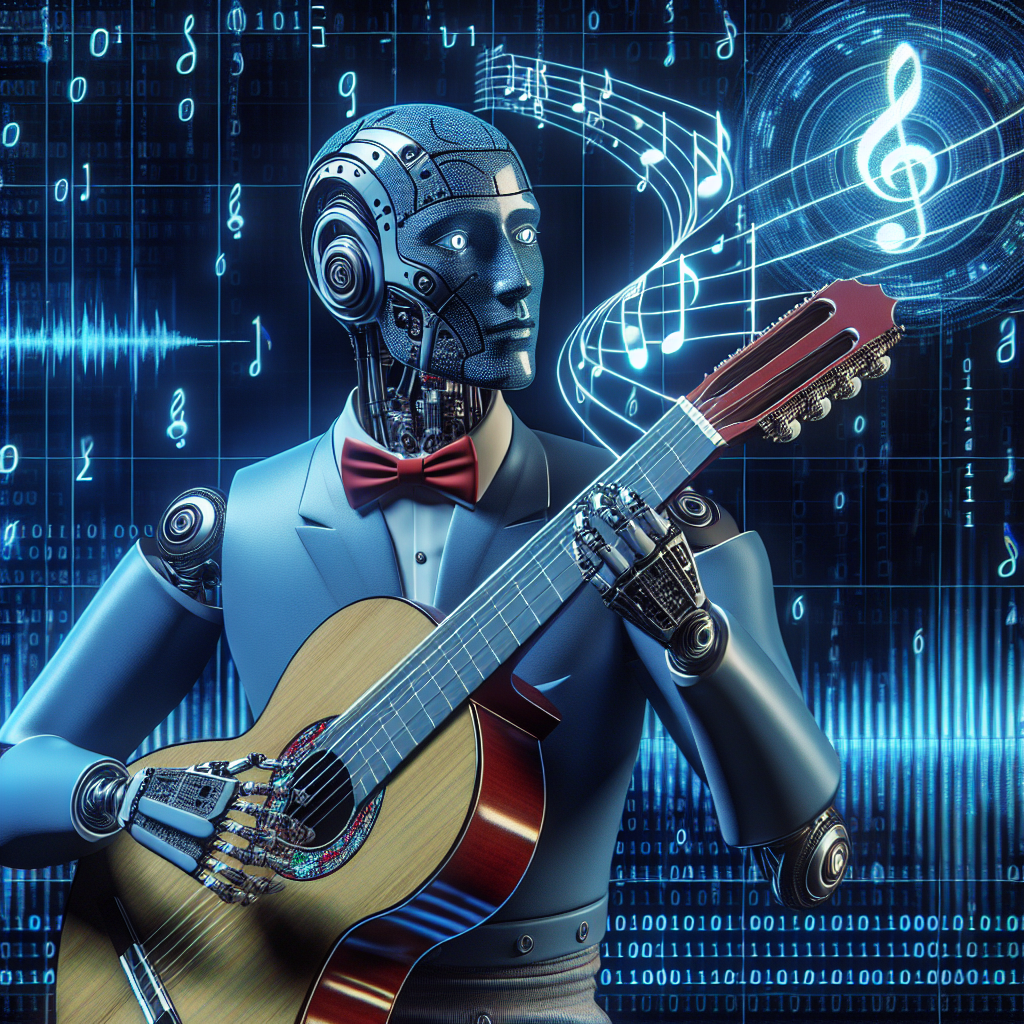Artificial Intelligence (AI) has been advancing rapidly in recent years, revolutionizing various industries and changing the way we live and work. One of the most fascinating developments in AI technology is the rise of virtual musicians – AI-powered entities that are capable of creating original music and even performing live concerts. These virtual musicians are blurring the lines between human creativity and machine intelligence, and are sparking conversations about the future of music and entertainment.
The concept of virtual musicians is not entirely new. In fact, the idea of using AI to create music dates back to the 1950s, when scientists and researchers began experimenting with computer-generated compositions. However, it is only in the past decade that AI technology has advanced to the point where virtual musicians can create music that is indistinguishable from that of human musicians.
One of the most well-known examples of a virtual musician is Hatsune Miku, a Japanese Vocaloid software developed by Crypton Future Media. Hatsune Miku is a virtual idol who has gained a massive following in Japan and around the world. She has released numerous albums, performed live concerts, and even appeared in video games and commercials. Hatsune Miku’s popularity has demonstrated the potential of virtual musicians to captivate audiences and generate revenue in the music industry.
Another example of a virtual musician is Aiva, an AI-powered composer developed by the Luxembourg-based startup Aiva Technologies. Aiva is capable of composing original music in various styles and genres, and has been used in film scoring, advertising, and other creative projects. Aiva’s compositions have been praised for their emotional depth and complexity, leading some to question whether AI can truly possess creativity and artistic expression.
The rise of virtual musicians has also raised questions about the impact of AI on human musicians and the music industry as a whole. Some fear that AI-powered musicians could replace human artists, leading to job losses and a homogenization of music. However, others believe that AI can complement human creativity and inspire new forms of artistic expression.
In reality, the relationship between AI and human musicians is likely to be more collaborative than competitive. AI can assist musicians in the creative process by generating ideas, exploring new sounds, and enhancing production capabilities. Many musicians are already using AI tools such as virtual instruments, music composition software, and sound design algorithms to enhance their work and push the boundaries of music creation.
Furthermore, AI can help democratize the music industry by providing opportunities for emerging artists to create and distribute their music on a global scale. Platforms such as Amper Music, Jukedeck, and Endel are using AI to empower independent musicians and producers to create high-quality music without the need for expensive equipment or studio time. This has the potential to disrupt traditional music industry models and empower a new generation of music creators.
As AI technology continues to evolve, the possibilities for virtual musicians are endless. AI-powered entities could revolutionize the way we experience live music, with virtual concerts and performances that push the boundaries of visual and auditory immersion. Virtual musicians could also collaborate with human artists to create groundbreaking new music that blends the best of human creativity and machine intelligence.
However, the rise of virtual musicians also raises ethical and philosophical questions about the nature of creativity, authenticity, and ownership in music. Who owns the rights to music created by AI? Can AI truly understand and express human emotions through music? How do we ensure that AI-powered musicians are used responsibly and ethically?
In conclusion, the rise of virtual musicians is a testament to the power of AI technology to transform and innovate the music industry. While there are concerns and challenges to address, the potential benefits of AI-powered musicians are vast and exciting. Virtual musicians have the ability to inspire, entertain, and challenge our notions of creativity and artistry, and are sure to play a significant role in the future of music and entertainment.
FAQs:
Q: Can AI-powered musicians replace human musicians?
A: While AI-powered musicians have the potential to create music that is indistinguishable from that of human musicians, they are more likely to complement human creativity rather than replace it. AI can assist musicians in the creative process and open up new possibilities for music creation, but human musicians bring a unique emotional and artistic sensibility that is irreplaceable.
Q: How do AI-powered musicians create music?
A: AI-powered musicians use algorithms, machine learning, and neural networks to analyze and generate music. They can compose original melodies, harmonies, and rhythms, as well as manipulate sound and create unique sonic textures. AI-powered musicians can also learn from existing music and styles to create music that is innovative and engaging.
Q: Are virtual musicians considered real artists?
A: The question of whether virtual musicians are considered real artists is subjective and open to interpretation. While virtual musicians are created and powered by AI technology, they are capable of creating music that resonates with audiences and evokes emotions. Ultimately, the value of a musician lies in the quality and impact of their music, regardless of whether they are human or virtual.
Q: How can AI-powered musicians benefit the music industry?
A: AI-powered musicians can benefit the music industry in various ways, such as by creating new revenue streams, expanding the reach of music to global audiences, and empowering emerging artists to create and distribute their music. AI can also assist in music production, composition, and performance, leading to new forms of creativity and innovation in the industry.

